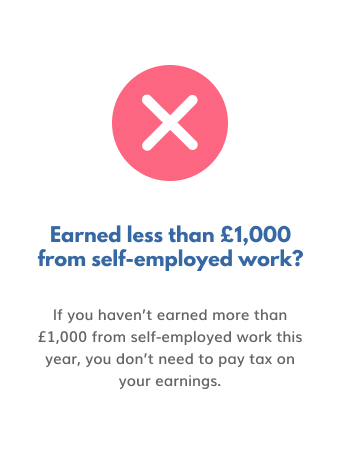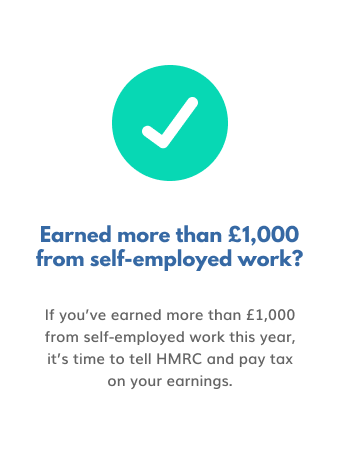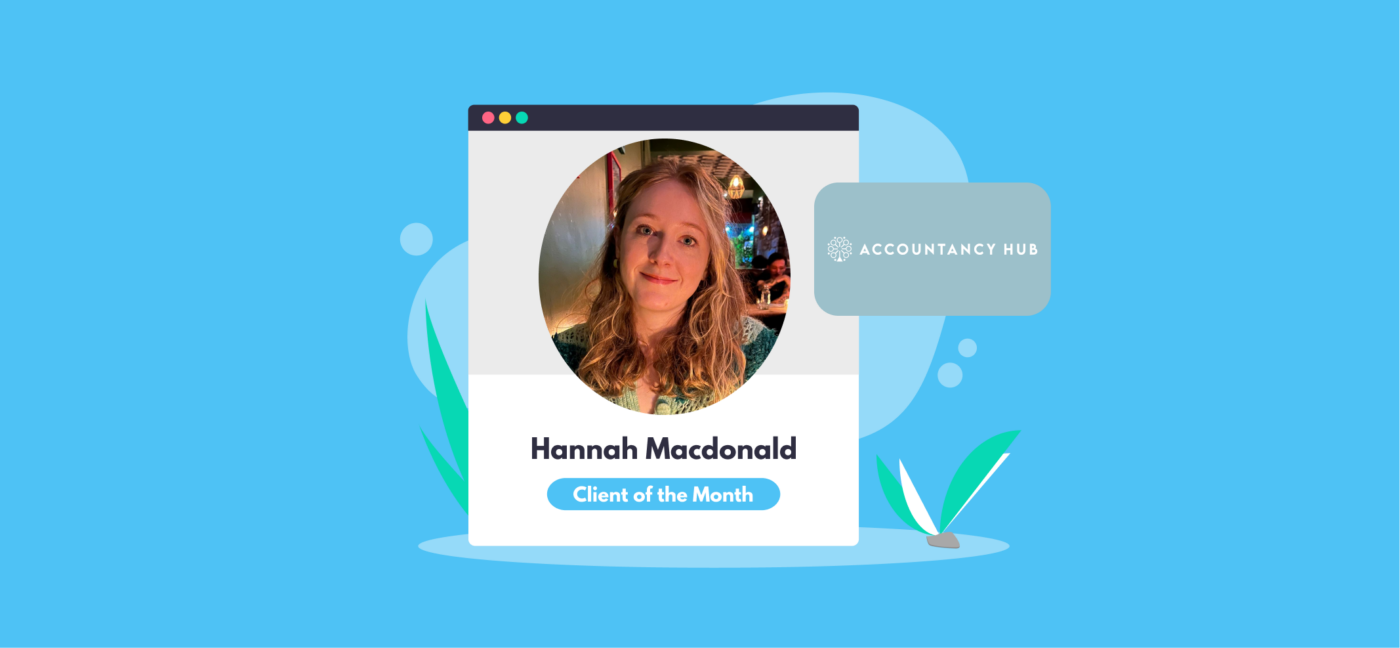

Top Tips on How to Start A Business
Starting your own business is a super exciting time but it can also be a little scary as you try to make sense of everything. In this article we take a look over what you need to do before launch day and beyond.
Why do you want to start your business?
Starting a business can mean more money and freedom but there’s a lot of work to put in first. We hate to say it, but at times you’ll need to make sacrifices and difficult decisions.
If you know the logic behind it, it will help you stay motivated and, crucially, having clear goals will help you plan how to achieve them more efficiently.
So, ask yourself why you’re starting the business. Someone who starts a business to do good in the local community will have a different approach to the person who wants to make enough to live on without working for someone else.
Which business structure is best?
Got a concept and name for your business? Great! To make things official you’ll now need to decide what sort of legal structure you should use to register your business. Don’t worry, this isn’t as daunting as it sounds, but it does need a bit of research.
All business structures have their pros and cons depending on your circumstances, so it’s worth asking a specialist for advice if you’re not sure. The most common business structures in the UK are:
- Sole trader
- Limited company
- Partnership
- Limited Liability Partnership (LLP)
A note on the trading allowance
Before you get as far as registering your business, it’s well worth us taking a moment to mention the £1,000 trading allowance. It enables you to earn up to £1,000 in a tax year from self-employment or property without needing to report this to HMRC or pay tax on the income, even if you also work for an employer.
Sole trader
Lots of low-risk start-ups register as sole traders because it’s the cheapest, quickest and simplest way to start a new business, and you won’t need to be listed on Companies House. It’s simply a case of registering with HMRC as soon as possible after you’ve started your business so you’re set up for Self Assessment.


Limited company
The big benefit of setting up as a limited company is that you, as the owner, are only responsible for business debts up to the value of your shares. In other words, unlike a sole trader, your business and personal finances are separate, so if the company ends up in financial difficulties your personal assets aren’t at risk.
Some people find that operating a limited company is more complex than being a sole trader as directors have certain responsibilities. You’ll also need to submit full accounts and pay Corporation Tax each year, along with your own tax return to report any dividends you take.
You might find our article Should I Register Myself as a Sole Trader or a Limited Company? useful here.
Partnership
If you’re planning to run your business with someone else, you might consider setting up as a partnership. You then share the responsibility and decision-making, so just be clear how profits will be shared.
Limited Liability Partnership (LLP)
This is basically a business partnership but combined with the safety net of having limited liability. Unlike general partnerships, setting up an LLP creates a separate legal entity to its owners, so your personal assets have more protection from anything happening to the business.
What about if I buy a franchise?
Franchising allows one business to operate using the branding and processes of another business – usually in exchange for fees and royalty payments. It can mean you’re launching a business using an established model which already works, but you’ll still need to register as a separate business.
Carry out market research
Researching your target audience first-hand is the best way to really understand what they want and need. It also gives you a much deeper understanding of your industry and your competitors. The results of regular market research will also help you make important business decisions around pricing and product development, helping you avoid costly mistakes (hopefully!).
A good tip here is to ask as many different people as possible. Try to approach people you don’t know to reduce bias, asking them to physically test your product or service, if possible. Focus groups are a popular way of doing this, or you could send out an online survey. And of course, check out what your competitors are doing to see if there’s a gap in the market you can fill.
How will you fund your startup?
When it comes to funding your startup business, there are a huge range of options out there. The government currently offers several small business loans and grants (the Finance and Support section of the Gov.uk website is a good place to start). It’s worth trying your local council too.
You might also decide to pitch to an investor, or dabble in a bit of crowdfunding. Again, you’ll need to do your homework and check your business plan is absolutely watertight. Whatever you do, make sure you can repay any loans and don’t end up in financial hot water that could sink you before you can swim.
Starting a business with no money (or not much)
Starting a business can be an expensive process, though this does depend on what it is you’re doing and some businesses deliberately strive for far lower start-up costs than others need to.
Whatever you’re starting, keeping costs down (without compromising quality) will help you reach that crucial break-even point and start turning a profit sooner. A few pointers we’ve picked up from our years of working with businesses include:
- Get your timing right: Launching your business at the best possible moment can help you save a lot of money. For example, you could spend all of your marketing budget advertising sunglasses in winter, or you could spend it in the summer when more people are likely to be interested. Budget management is a key skill!
- Choosing your workspace: Renting or buying space is often one of the biggest expenses a start-up business faces. It’s also fairly common for it to be unnecessary – we’re here with the tough love! Unless it’s absolutely necessary to work from specific premises, can you save money by starting your business elsewhere, such as from home?
- Buy used equipment: Yes, you can claim tax relief on allowable expenses, but it’s usually more cost-effective to keep those expenses low – particularly in the early days!
Write a business plan (and regularly revisit it!)
It’s important to be specific and clear about what your business is so investors and stakeholders can better understand your goals and objectives. The easiest way to communicate what defines your business and how you intend to reach your goals is with a business plan.
A plan also helps keep a business on track. You’ll make better decisions if you know what you’re working towards, though you can always make changes as you progress and discover what works for your venture.
Your business plan should include details about what your business does, what products or services it offers, your pricing structure and who else is involved, such as partners and employees. It should also explain how customers will access what you’re selling (so online, by phone or by coming to a premises), as well as your longer-term plans for growth.
Make a cash flow forecast
You should consider creating a cash flow forecast even before you launch the business – it’s an important part of the planning process. Cash flow forecasting is essentially an estimation of how much money you expect your business to make – and pay out – over a specific time period.
Once you have actual bookkeeping figures to refer to, you can use these to make your forecasts more accurate. Keeping your cash flow report up to date will really support your decision-making and give you a sense of financial control!
Have a marketing plan
Marketing your business well is essential to success, no matter how uncomfortable you may feel getting out there and selling. Again, like anything in business it helps if you have a plan. This means planning your strategy for social media, content marketing, PR, marketing events and SEO. It sounds complicated, but even if you want to start your business slowly and rely on word-of-mouth recommendations to grow – that’s a plan! Consider:
- Your customers
- How your business looks, sounds, and seems (known as branding), and whether this is the right message for your business
- The best way to let people know your business is on its way
Understand your duties and obligations
Running your own business means you’re responsible for pretty much everything, so take your time and make sure you understand what needs to happen and when – and ask for help when you need it!
When do you need to submit a tax return?
Some of your responsibilities will depend on what sort of business structure you choose, such as the type of tax returns you need to submit (which, in turn, impacts your deadlines for reporting and submitting information).
Open a business bank account
Having a separate bank account for the business is a legal requirement for limited companies anyway, but it’s strongly advisable for any business. It’s also particularly useful if you’re working with someone else, so everyone can see exactly what’s happening and access the account without things getting messy.
Learn about managing and recording your finances
Ok, we’re accountants, so we’re going to preach the benefits of creating and maintaining meticulous bookkeeping records. It’s because we’re accountants that we know just how beneficial this is – we see it every single day. Keeping your records accurate and up to date:
- Is essential for staying out of trouble with HMRC
- Makes it much easier to prepare your tax return and accounts
- Helps you make more reliable business decisions, based on actual facts
- Means you’re more likely to claw back every single allowable expense
Take a breath!
Launching your own business can be insanely stressful, whether you’re sneaking in a side-hustle, or launching yourself straight into full-time self-employment. Be kind to yourself! There will be lots of things you don’t know, so be prepared to make mistakes.
Getting support from the right places will help, and you’ll often find mentoring available from networking groups, your local Chamber of Commerce, and even from the bank if you have a business loan. You don’t have to do absolutely everything yourself, so ask for help when you need it, and take breaks too – burnout is real!
Thinking of starting a business? Take a look at our guides and videos to learn more, or chat to a member of the team to see how we can help. Call 020 3355 4047, or get an instant online quote.
Want to learn more?
Subscribe to our newsletter to get accounting tips like this right to your inbox

Read more posts...

A Guide to Employer’s National Insurance
28th February 2026It’s important to look beyond the headline salary and consider the full cost of employment when you hire a new employee. Expenses…
Read More
February 2026 Client of the Month: Accountancy Hub
27th February 2026This month we spoke to Hannah, founder of Accountancy Hub. Accountancy Hub | Instagram Hey Hannah! Tell us about your business…
Read More
Paying Yourself a Salary from Your Limited Company
26th February 2026Being a director means you’re legally separate from your limited company even if you’re also the owner, so you’ll need to decide…
Read MoreConfirm Transactions
The number of monthly transactions you have entered based on your turnover seem high. A transaction is one bookkeeping entry such as a sale, purchase, payment or receipt. Are you sure this is correct?
Please contact our sales team if you’re unsure
VAT Returns
It is unlikely you will need this service, unless you are voluntarily registered for VAT.
Are you sure this is correct?
Call us on 020 3355 4047 if you’re not sure.
MTD IT Quarterly Updates
Your final, end of year MTD Income Tax submission is included in your fee, without this add-on service.
We would recommend you submit the quarterly updates yourself using Pandle or alternative bookkeeping software.
However, if you would prefer us to submit these quarterly updates for you, there is an additional fee of £35.00 per month.
Call us on 020 3355 4047 if you’re not sure.
Bookkeeping
You will receive our bookkeeping software Pandle for free, as part of your package.
You can use this to complete your own bookkeeping, or we can provide a quote to complete your bookkeeping for you.
Please select and option below:
Call us on 020 3355 4047 if you’re not sure.

